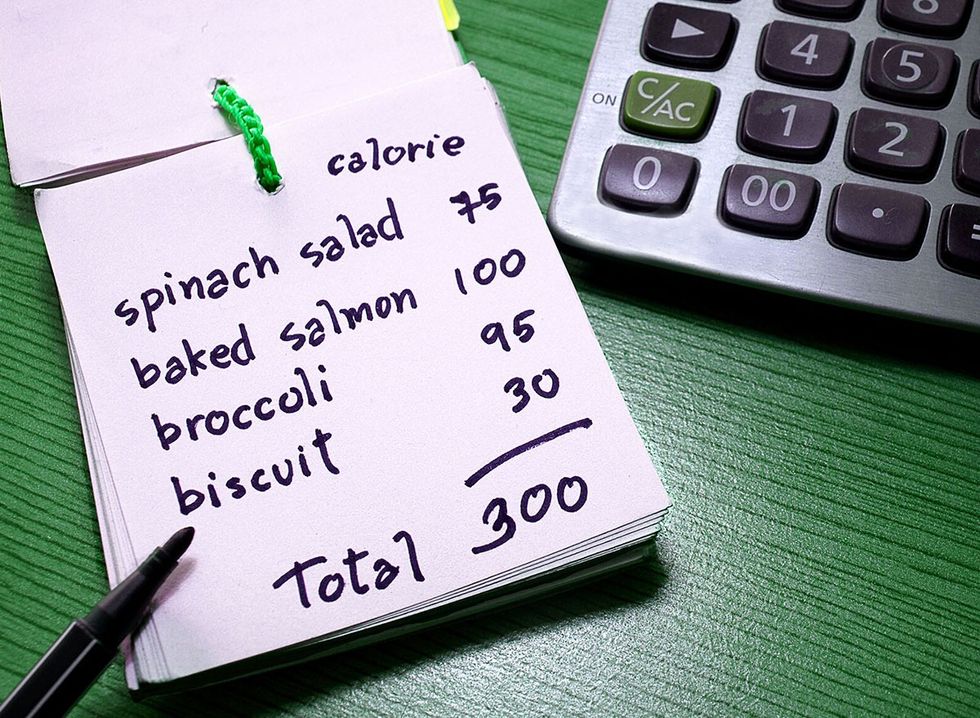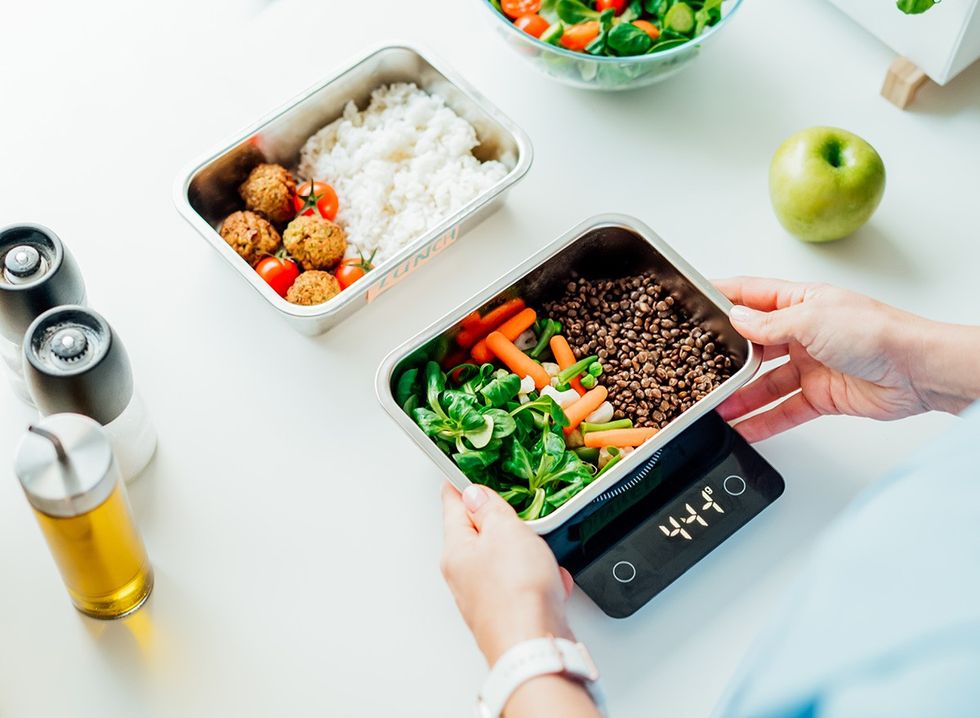Nearly three out of four adults struggle with being overweight or obese, and this challenge becomes even more difficult after age 50. Dr. Morgan Nolte, a board-certified clinical specialist in geriatric physical therapy and founder of Zivly, has seen firsthand how excess weight increases risk factors for conditions like type 2 diabetes, heart disease, and dementia. "Having excess weight is a risk factor for so many of the health conditions that I treated in geriatric physical therapy," notes Dr. Nolte. Understanding how many calories you should actually consume—and why the standard advice often fails—could be the key to finally achieving sustainable weight loss in your 50s and beyond.
Why Calorie Counting Alone Doesn't Work
Traditional calorie-restricted diets often lead to disappointing results, especially after 50. "Research shows that every time you do a diet, your metabolism slows down," Dr. Nolte explains in her post. This metabolic adaptation means when you return to normal eating, you'll likely gain back even more weight than before. The problem isn't just about willpower—it's about understanding how your body's metabolism and hormones change with age.
Your Hormones Change Everything After 50

Shutterstock
Your body undergoes significant hormonal shifts after 50 that directly impact weight management. "As you age, you become more prone to something called insulin resistance," says Dr. Nolte. For women who have experienced menopause, decreased estrogen removes a natural protection against insulin resistance. "That's why a woman's body can change so much after menopause becoming softer, less muscular. And you're likely going to notice more belly fat," Dr. Nolte points out.
Understanding How Insulin Affects Your Weight

Shutterstock
Insulin fundamentally controls whether your body stores or burns fat. Dr. Nolte describes insulin as "your fat creation and storage hormone," explaining how chronically elevated levels lock your body in fat-storage mode. Simply reducing calories without addressing insulin resistance creates a perfect storm of hunger, cravings, and metabolic slowdown that ultimately leads to weight regain.
Why What You Eat Matters More Than How Much
 Hopping “On and Off” the WagonShutterstock
Hopping “On and Off” the WagonShutterstockThe composition of your diet dramatically influences your hormonal response. "1500 calories from chicken and vegetables are processed completely differently and create a different hormonal cascade in your body and brain than 1500 calories from donuts and cookies," Dr. Nolte explains. Foods that trigger insulin spikes direct energy toward fat storage, while protein-rich options support muscle maintenance and steady energy levels.
Why Popular Diet Plans Often Fail After 50
 Shutterstock
ShutterstockMany established weight loss programs don't account for the physiological changes that occur after 50. "You might be following a popular plan like Weight Watchers or a plant-based diet, but these programs may not be addressing your insulin resistance," warns Dr. Nolte. She notes that many people unintentionally sabotage their efforts by "overeating carbs with all those zero point Weight Watchers foods like apples and bananas that spike blood sugar and insulin."
How Much Protein You Actually Need
 Protein-Rich Foods to Include DailyShutterstock
Protein-Rich Foods to Include DailyShutterstockMaintaining muscle mass becomes increasingly challenging after 50, making protein intake crucial. Dr. Nolte recommends "getting one gram of protein per pound of your ideal body weight every day." For instance, if your ideal weight is 130 pounds, aim for approximately 130 grams of protein daily. This approach ensures that weight loss comes primarily from fat rather than muscle tissue.
Calculate Your Maintenance Calories
 Shutterstock
ShutterstockBefore creating a deficit, you need to establish your baseline calorie needs. "The easiest way to do this is by tracking your food intake for about a week without changing what you're eating or how much you're eating," suggests Dr. Nolte. For a simpler approach, non-exercising women can multiply their current weight by 10, exercising women by 12, and men by 13 (non-exercising) or 15 (exercising).
The Right Calorie Deficit For Sustainable Results
 Shutterstock
ShutterstockAfter determining your maintenance calories, create a moderate deficit for healthy, sustainable weight loss. "We recommend a mild to moderate deficit of 250 to 500 calories per day," Dr. Nolte advises. This approach supports steady weight loss without triggering the metabolic slowdown that follows severe restriction, helping you establish habits that last.
Focus On Low-Insulin Foods

Shutterstock
The types of food you eat significantly impact your insulin levels and weight loss success. Dr. Nolte recommends focusing on "nutrient-dense, low inflammatory foods like lean proteins, vegetables, healthy fats, and low-carb options." These foods provide essential nutrients while minimizing insulin spikes that promote fat storage and inflammation.
The Long-Term Approach That Actually Works

Shutterstock
Achieving lasting weight loss after 50 requires addressing the root causes of weight gain. "The secret to losing weight, keeping it off, and improving your health after 50 is all about a low insulin and inflammation lifestyle," Dr. Nolte emphasizes. Unlike temporary diets or quick fixes, this approach creates sustainable changes that support your health and weight management goals for years to come. And if you enjoyed this article, don't miss I Hit 60 and These 15 Anti-Aging Foods Keep Me Fit and Feeling 20 Years Younger.













 Monitor Your Progress Through TestingShutterstock
Monitor Your Progress Through TestingShutterstock Common Side Effects to ExpectShutterstock
Common Side Effects to ExpectShutterstock 5 Signs Your Body May Be Lacking Vitamin D, Say ExpertsShutterstock
5 Signs Your Body May Be Lacking Vitamin D, Say ExpertsShutterstock Shutterstock
Shutterstock EggsShutterstock
EggsShutterstock Protection Against Fatty Liver DiseaseShutterstock
Protection Against Fatty Liver DiseaseShutterstock Greek Chicken BowlShutterstock
Greek Chicken BowlShutterstock Shutterstock
Shutterstock Digestive IssuesShutterstock
Digestive IssuesShutterstock Shutterstock
Shutterstock


 Shutterstock
Shutterstock Shutterstock
Shutterstock Shutterstock
Shutterstock Shutterstock
Shutterstock Shutterstock
Shutterstock Shutterstock
Shutterstock
 Shutterstock
Shutterstock Shutterstock
Shutterstock Shutterstock
Shutterstock Shutterstock
Shutterstock Shutterstock
Shutterstock Shutterstock
Shutterstock Shutterstock
Shutterstock Shutterstock
Shutterstock Shutterstock
Shutterstock Shutterstock
Shutterstock Shutterstock
Shutterstock Shutterstock
Shutterstock Shutterstock
Shutterstock Shutterstock
Shutterstock Shutterstock
Shutterstock Shutterstock
Shutterstock Shutterstock
Shutterstock Shutterstock
Shutterstock Shutterstock
Shutterstock Shutterstock/Shift Drive
Shutterstock/Shift Drive
 Shutterstock
Shutterstock What To Do InsteadShutterstock
What To Do InsteadShutterstock Progress to Full Push-upsShutterstock
Progress to Full Push-upsShutterstock Shutterstock
Shutterstock Regular ExerciseShutterstock
Regular ExerciseShutterstock Shutterstock
Shutterstock Shutterstock
Shutterstock Breaking Free from Food ObsessionShutterstock
Breaking Free from Food ObsessionShutterstock Shutterstock
Shutterstock Shutterstock
Shutterstock Stress Leads to Belly FatShutterstock
Stress Leads to Belly FatShutterstock Shutterstock
Shutterstock HydrateShutterstock
HydrateShutterstock

 I'm a Nutritionist and These 9 High-Protein Snacks Keep My Clients Full While Losing 50 Pounds
I'm a Nutritionist and These 9 High-Protein Snacks Keep My Clients Full While Losing 50 Pounds